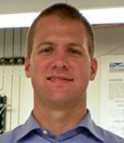Instructor List |
2024-04-23 |
The following instructors and speakers have agreed to contribute their expertise to the success of Skyline Online Course:
 |
Brendan MacLean Brendan worked at Microsoft for 8 years in the 1990s where he was a lead developer and development manager for the Visual C++/Developer Studio Project. Since leaving Microsoft, Brendan has been the Vice President of Engineering for Westside Corporation, Director of Engineering for BEA Systems, Inc., Sr. Software Engineer at the Fred Hutchinson Cancer Research Center, and a founding partner of LakKey Software. In this last position he was one of the key programmers responsible for the Computational Proteomics Analysis System (CPAS), made significant contributions to the development of X!Tandem and the Trans Proteomic Pipeline, and created the LabKey Enterprise Pipeline. Since August, 2008 he has worked as a Sr. Software Engineer within the MacCoss lab and been responsible for all aspects of design, development and support in creating the Skyline Targeted Proteomics Environment and its growing worldwide user community. |
|
 |
Michael J. MacCoss, Ph.D. Mike became interested in biomedical applications of mass spectrometry while working in Dr. Patrick Griffin’s protein mass spectrometry lab at Merck Research Laboratories. He obtained a Ph.D. with Professor Dwight Matthews and pursued a postdoc with Professor John R. Yates III. In 2004 he started the MacCoss lab at the University of Washington and it became obvious that while mass spectrometry data could be collected quickly and robustly, the lack of computational tools for the visualization and analysis of these data was a stumbling block. In 2009 he recruited Brendan MacLean with the goal of developing professional quality software tools for quantitative proteomics. Mike has worked closely with the Skyline development team and our outstanding group of laboratory scientists and collaborators to ensure that our software uses analytical approaches that have been thoroughly vetted by the mass spectrometry community. |
|
 |
Kendra Adams, Ph.D. Kendra is a Lab Research Analyst at the Duke Proteomics and Metabolomics Shared Resource studying small molecules. She works in collaboration with Dr. Carol Colton in the Department of Neurology at Duke University. She currently uses mass spectrometry to study Alzheimer’s disease in new mouse models. Kendra earned her PhD in Dr. Francisco Fernandez-Lima’s Lab at Florida International University where she analyzed small molecules using LC-TIMS-MS. Her current research focuses on method development for targeted biomarker analysis and stable isotope tracing for Alzheimer’s disease. |
|
 |
Susan Abbatiello Ph.D. Sue received a Ph.D. in analytical chemistry at the University of Florida, and completed a postdoc at the University of Pittsburgh’s Hillman Cancer Center. Susan is currently the executive director of the MS Core Facility at the Barnett Institute at Northeastern University, and a visiting scientist in the Proteomics Platform at the Broad Institute of MIT and Harvard. Susan’s research focuses on the development of experiments to measure potential protein biomarkers in cell lines and blood for diseases such as cancer. Susan has co-chaired a committee that is part of the National Cancer Institute’s Clinical Proteomic Technology Assessment for Cancer (CPTAC). |
|
 |
Chris Ashwood, Ph.D. During Chris’s graduate studies with Dr. Nicolle Packer, he developed expertise in the structural analysis of released glycans from mammalian glycoproteins using porous graphitized carbon (PGC)-based LC-MS/MS. In his post-doctoral training in Dr. Gundry’s laboratory, Dr. Ashwood, has applied these methods to develop the first N- and O- glycan maps of primary human cardiomyocytes and stem cell-derived cardiomyocytes, characterizing glycans that are potentially useful for identifying cells of various cell culture stages and cell types. With a long-term goal of developing automated analytical workflows for characterization and quantification of glycans, he also actively works to improve the bioinformatic analysis of glycan and glycopeptide MS data.To date, his scientific contributions include 11 peer reviewed publications, of which he is first author on 4. He has also recently received a prestigious Postdoctoral Career Development Award from the American Society for Mass Spectrometry. |
|
 |
Josue Baeza is a postdoctoral fellow in the laboratory of Dr. Benjamin Garcia at the University of Pennsylvania. He obtained his Ph.D. at the University of Wisconsin-Madison under the mentorship of Dr. John Denu. During his Ph.D., he developed a chemical labeling strategy to quantify lysine acetylation stoichiometry and applied this method to determine rates of non-enzymatic acetylation (measured as second-order rate constants) as well as histone acetylation turnover rates. As a postdoctoral fellow in the Garcia Lab, Josue is interested in understanding mechanisms regulating protein turnover including how changes in protein turnover influence the epigenetic landscape as well as developing methods to quantify protein turnover in vivo. | |
 |
Erin Baker Ph.D.
|
|
 |
Matthew Foster Ph.D. Matt is an Assistant Professor in the Division of Pulmonary, Allergy and Critical Care Medicine at Duke University and has been on the staff of the Duke Proteomics and Metabolomics Shared Resource since 2010. Matt received his PhD in bioinorganic chemistry from The Ohio State University and post-doctoral training in nitric oxide biology at Duke. His current research interests are primarily in application of proteomics to the study of airway biology and disease. He leads a variety of basic and clinical science projects for the DPMSR utilizing MS1-based quantitation, data-independent acquisition and parallel reaction monitoring, with a particular emphasis on quantitative proteomics of biofluids and secretomes. |
|
 |
Kaylie Kirkwood Kaylie is a second-year graduate student at North Carolina State University working under the advisement of Dr. Erin Baker. Thus far, her research has focused on the development of lipid LC-IMS-MS libraries in Skyline and the application of these libraries to various clinical and environmental applications. Skyline was the first software Kaylie learned to use as an undergraduate researcher for small molecule detection including cyanotoxins, amino acids, and metabolomics profiling of amyotrophic lateral with Dr. David Muddiman. Its adaptability and interactive developers have allowed her to continue utilizing it in her current research. |
|
 |
Christina Ludwig, Ph.D. Tina is heading the proteomics section at the Bavarian Center for Biomolecular Mass Spectrometry (BayBioMS) at the Technical University Munich (www.baybioms.wzw.tum.de). Her current research interests are focused on technical development projects related to targeted and data-independent mass spectrometry, including Selected Reaction Monitoring (SRM), Parallel Reaction Monitoring (PRM) and SWATH-MS. During her postdoc in the laboratory of Professor Ruedi Aebersold at the ETH Zürich Christina was involved in projects aiming for specific site-localization of post-translational modifications and estimation of absolute protein abundances from label-free, targeted mass spectrometric data. |
|
 |
Andy Hoofnagle, MD, Ph.D. Andy is an Associate Professor in the Department of Laboratory Medicine at the University of Washington. His laboratory focuses on developing CLIA-certified assays for small molecules using mass spectrometry. They also investigate the function of high density lipoproteins in patients at increased risk for cardiovascular disease and the translation of proteomics technologies into the clinical laboratory. |
|
 |
Arthur Moseley, MD, Ph.D. Arthur is the Director of the Proteomics and Metabolomics Shared Resource at Duke and is an Associate Research Professor in the Department of Medicine. He came to Duke to start-up the Proteomics Resource in 2007, after sixteen years managing mass spectrometry labs at GSK. For the last six of those years, he managed the proteomics mass spectrometry labs in the US and UK. Arthur received his PhD in 1990, in the laboratory of Professor Jim Jorgenson at UNC, where his research addressed the coupling of CE and nanoscale LC with mass spectrometry for the analysis of peptides (aka - proteomics before the term proteomics was coined by Marc Wilkens in 1994). |
|
 |
Lindsay K. Pino, Ph.D. Lindsay is a postdoctoral researcher in Dr. Ben Garcia’s lab at the University of Pennsylvania where she uses quantitative mass spectrometry to study epigenetics. Before going to the University of Washington for graduate school, she spent two years in South Korea as a Fulbright scholar and three years working as a research associate in Dr. Steve Carr's Proteomics Platform at the Broad Institute of MIT and Harvard. She earned her PhD under the joint advisorship of Drs. Michael J. MacCoss and William Stafford Noble. There, she developed techniques for data independent acquisition mass spectrometry, in particular the challenges associated with scaling up quantitative mass spectrometry experiments. Her research interests are in the roles proteins play in nuclear organization and the maintenance of genomic stability. |
|
| Pawel Sadowski, Ph.D. Pawel completed his Ph.D. in the field of quantitative proteomics at the University of Cambridge. During subsequent post-doctoral appointments at the New York University and at the University of New South Wales in Sydney he applied label-free and label-based approaches to study biomarkers, protein-protein interactions and PTMs. In 2013 Pawel joined Queensland University of Technology in Brisbane to lead Proteomics and Small Molecule Mass Spectrometry Core in the QUT Central Analytical Research Facility. He supervises research that utilizes LCMS and GCMS instrumentation. Pawel’s interest lays in leveraging the power of recent advancements in data acquisition strategies for MS-based proteomics to drive clinical veterinary research into the next generation. More recently, he has started using quantitative mass spectrometry to study metabolites and other small molecules. | ||
 |
Birgit Schilling, Ph.D. Birgit is Associate Professor and the Director of the Mass Spectrometry and Chemistry Core at the Buck Institute for Research on Aging in Novato, CA. Research projects include investigations of neurodegenerative diseases, aging, cancer, mitochondrial damage, protein posttranslational modifications including acetylation in bacteria, the role of surface glycoconjugates in bacterial pathogenesis etc., but also mass spectrometric method development. Birgit has worked in the field of protein quantitation to assess differential protein expression or changes in posttranslational modifications, particularly using selected reaction monitoring stable isotope dilution mass spectrometry (SRM-SID-MS), and other chemical and metabolic labeling quantitative workflows, i.e., iTRAQ and SILAC technologies. Birgit has participated in large multi-laboratory SRM verification studies taking advantage of Skyline’s platform independent features. In recent years, she has used more and more label free protein quantitation approaches to investigate discovery mass spectrometric data sets (Skyline MS1 Filtering), as well as newer quantitative workflows, such as high resolution data-independent acquisitions (SWATH and PRM). Birgit has co-developed some algorithms for the Skyline Tool Store and she also extensively uses the interactive data sharing features of the Panorama webserver. |
|
 |
Brian Searle, Ph.D. Brian is a Translational Research Fellow at the Institute for Systems Biology. Brian received his chemistry BA at Reed College in 2001. In 2004, he co-founded Proteome Software with Mark Turner and Dr. Ashley McCormack to produce and distribute cutting-edge data analysis software for proteomicists. In 2014, he returned to academia to earn his PhD with Dr. Michael MacCoss at University of Washington, where he developed methods to detect and quantify proteins and phosphosites using mass spectrometry. In 2018, he joined the Institute for Systems Biology as an independent fellow to build a research program that spans the intersection of proteomics, mass spectrometry, bioinformatics, and technology development to study human genetic variation. |
|
 |
Lisa St. John-Williams Lisa joined the Duke Proteomics and Metabolomics Shared Resource as a Senior Research Analyst after a number of years as a Bioanalytical Project Manager at GlaxoSmithKline. Her primary focus at Duke has been to use skills in a variety of extraction and derivatization techniques to develop robust, high-throughput methods for quantitative bioanalysis to support both basic research and clinical metabolomics projects. |
|
 |
J. Will Thompson, Ph.D. Will is the Assistant Director of the Duke Proteomics and Metabolomics Shared Resource, and Assistant Research Professor in the Department of Pharmacology and Cancer Biology. He received his Ph.D. in Ultrahigh Pressure Liquid Chromatography from the laboratory of Dr. Jim Jorgenson at the University of North Carolina at Chapel Hill, and subsequently joined the Disease and Biomarker Proteomics group led by Dr. Arthur Moseley at GlaxoSmithKline. In 2007, Dr. Thompson assisted Dr. Moseley in founding the Duke Proteomics Core Facility, which as of winter 2017 has 10 full time scientists. Dr. Thompson has overseen the expansion of the group's efforts into small molecule and metabolomics analysis, which now represents roughly 40% of the work of the Shared Resource. His research in part focuses on application of novel proteomics and targeted metabolomics assays to clinical and basic science research applications, with special emphasis on Alzheimer's Disease. The Core has completed over 1200 projects for nearly 200 principal investigators since 2007, and works with investigators both inside and outside the Duke School of Medicine. |